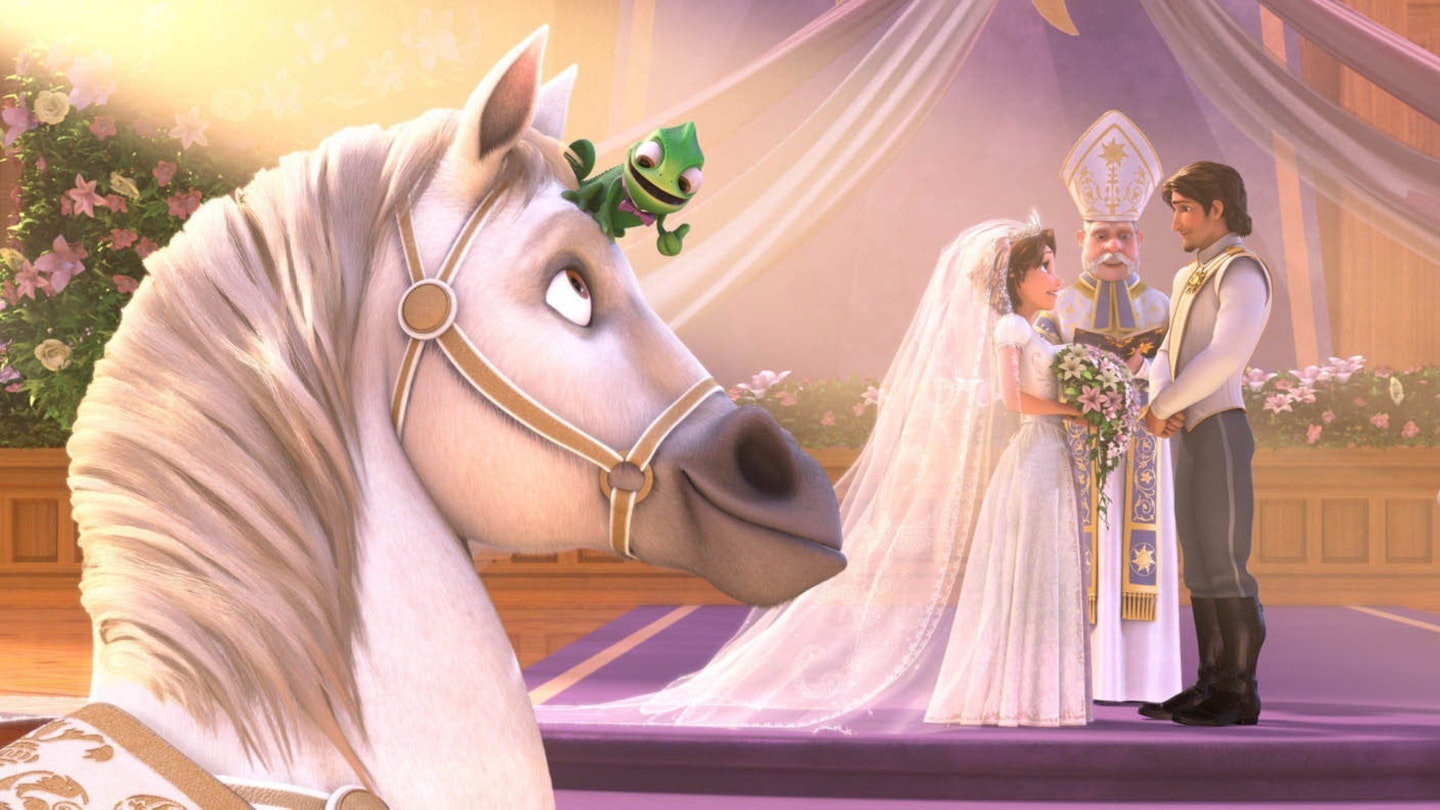No polymorphing pumpkins. No fairy godmother. No talking mice, anomalous bellboys or dishpan warbling. The ugly sisters are unattractive only in personality. The setting is the splendidly rural 17th century France. And "Cinderella" (actually Danielle) is a right-on, free-thinking kind of girl, who quotes stridently from Thomas Moore's Utopia. This is, indeed, a "retelling" of the Cinderella legend for the clued-up romantics of the 90s, putting aside childish things to deliver a rather pompous, overlong, only thinly charming love story.
Drew Barrymore, blowsy with her long brown tresses, is the put-upon Danielle left in the care of devious stepmother Rodmilla (Huston) and her spiteful offspring when her beloved pop inconveniently shuffles off his mortal coil. Bookish and mellow, she manages to charm local princeling Henry (Scott) who's simply looking for a girl who understands him, and does so without revealing her undesirable station in life. Meanwhile, the viperish rellies are plotting a rival royal match. Cue: the masked ball.
The touchstones of the original myth waver in and out of Tennant's beautifully shot French countryside dotted with fabulously ornate castles. The ball is swoonsomely shot in a swathe of colour, Danielle's hasty exit down less to bad timing than the revelation of uncomfortable truths. The sisters plot and connive with traditional, if gender defined, fervour - although one is granted a degree of heart. There are glass slippers. And the name "Cinderella" is delivered as a snidey nickname to the grubby faced Danielle.
From there the panto-trappings go the way of Hollywood scriptology. Anjelica Huston relishes the opportunity for excess, underpinning her classic role with a dark eroticism, hinting at psychological damage to dress the part in a layer of quasi-tragedy. Scott's Prince Henry cuts a fair dash, undercutting his archetype with an air of juvenilia only our heroine's stoic cleverness can tame. But there is no conviction in Barrymore's portrayal of her romantic heroine, with the actress looking far from her best. And at times her morose pseudo-intellectualising is so damn dull you end up rooting for step-mumsy.
Muddled by too many plot strands -including the appearance of Leonardo Da Vinci as a wise old cove on a cultural tour - this dour film is ultimately undone by its high ideals. In the end love wins, cruelty is vanquished and the good girl gets to live a life of pampered indulgence with a flawless hunk for the rest of her days. So why deny us the magic?
